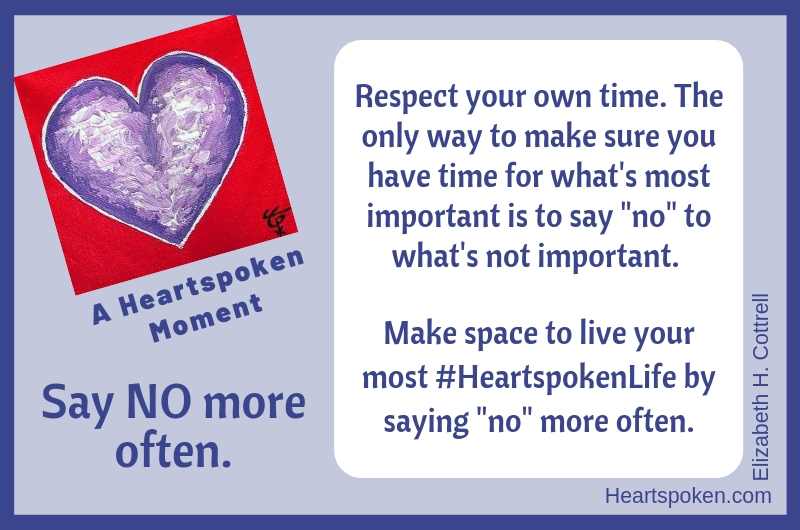“Say NO more often and YES more fully.” ~ Laura West, Joyful Business
Most of us have trouble saying “No”
According to happiness expert Gretchen Rubin, when it comes to the way we humans handle inner and outer expectations,* most of us are “Obligers.” I certainly am, and that means it’s hard for me to say “No” when I’m asked to do something. The vicious cycle obligers can get themselves into is that by never saying “No,” their friends and family are accustomed to knowing they’ll get a “Yes” from us, so they ask even more often. When we rebel (this is a real thing called “Obliger Rebellion”), all heck breaks loose. It’s better to learn to say “No” gradually.
Trust me. I’ve learned this the hard way.
The side benefits of saying “No”
- When you say “no” to the things that are less important to you, you have more time to say “yes” to the things that matter a great deal. This is crucially important to aligning your actions with your values and contributes not only to your happiness but to the world.
- When you say “no,” you’ve given someone else an opportunity to say “yes.”
- When you say “no,” you eliminate a significant source of stress from having more to do than you can do well.
- When you say “no,” you are modeling an important self-care discipline for your children and grandchildren.
I need help learning to say “No”
Have you developed some tactful but effective ways to say “No” in your life?
I’m desperate to hear them!
My own application of the advice in this post is still a work in progress, so please share in the comments below. And if you know someone who needs this advice, please send them this post.
It would be an act of love.

CLICK HERE to take Gretchen Rubin’s Four Tendencies quiz to find out whether you are an Obliger, a Questioner, an Upholder, or a Rebel.
Join us on the third Tuesday next month for another Heartspoken Moment.
Pin this:




 All You Need To Know Is Already Close At Hand
All You Need To Know Is Already Close At Hand